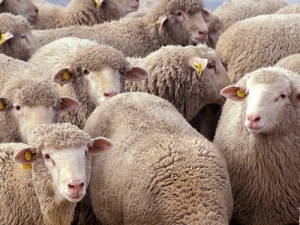ACC urges safety during spring calving
Dairy farmers around the country are into the busy spring calving period.
 Sheep shearing has accounted for more than $3 million in injury claims to ACC over the past three years.
Sheep shearing has accounted for more than $3 million in injury claims to ACC over the past three years.
New Zealand sheep farmers are being urged to take care as pens fill up in wool-sheds across the country.
Sheep shearing has accounted for more than $3 million in injury claims to ACC over the past three years.
Last year, there were 122 sheep shearing-related injuries serious enough to require funding support from ACC. Leading injuries included back injuries, sprains, strains and muscular stress caused by prolonged bending.
WorkSafe New Zealand's Safer Farms programme is working with the rural sector to promote good health and safety practices and reduce the high rates of accidents and fatalities on farms.
It has published a fact sheet on sheep-shearing, after wide consultation with the industry, to coincide with the new Health and Safety at Work Act 2015. Comprehensive guidance will be available by the end of July. This is good timing because shearing will be getting underway on many farms over the next few months.
Al McCone, programme manager for agriculture at WorkSafe, says the beginning of pre-lamb shearing in a few months means increased handling of stock and greater risks.
"Over 60 million sheep are shorn each year and many more crutched. This work has a high risk of injury but generally professional shearers and wool handlers have the technique, fitness and equipment-care practices to manage the risks. Farmers who shear and crutch a few sheep now and again, rather than full-time, are at risk through less-practiced technique, poorly-maintained gear or not physically being prepared for the task," says McCone.
Injuries like sprains and strains can be avoided by using the correct techniques while handling or shearing sheep. Checking and maintaining shearing equipment is also an important aspect of safety and efficiency.
"Make sure grinders are stable and secure when being used, and check to see that your hand pieces are in good working order. Hygiene is important, always wash and dry hands after contact with sheep to help avoid zoonotic diseases like leptospirosis," says McCone.
"Catching and dragging sheep to the shearing stand, and the actual shearing, all require good technique – as do the wool handlers whose job it is to prepare the wool for sale. Keep your back straight, especially while dragging or lifting, and avoid twisting your spine. Like bowling a cricket ball, a good technique is incredibly important if you're to avoid injuries."
Farmers who are preparing for shearing need to make sure that their woolsheds, machinery and associated facilities are in good working order.
"Make sure the wool press is working well, all the safety features are functioning, and that anyone who uses it knows what they are doing." Good, clear communication between farmers and shearing contractors (or those being employed directly) is essential to make sure the work is safe. Before you or others begin any job on the farm, stop and consider what you need to watch out for, and how to complete it safely.
More people are killed farming than in any other industry in New Zealand – 18 people died in farm-related work incidents in 2015. In addition to deaths, there are thousands of injuries that lead to a loss of productivity and income for farmers. Advice and a range of health and safety guidelines are available at www.saferfarms.org.nz
The National Wild Goat Hunting Competition has removed 33,418 wild goats over the past three years.
New Zealand needs a new healthcare model to address rising rates of obesity in rural communities, with the current system leaving many patients unable to access effective treatment or long-term support, warn GPs.
Southland farmers are being urged to put safety first, following a spike in tip offs about risky handling of wind-damaged trees
Third-generation Ashburton dairy farmers TJ and Mark Stewart are no strangers to adapting and evolving.
When American retail giant Cosco came to audit Open Country Dairy’s new butter plant at the Waharoa site and give the green light to supply their American stores, they allowed themselves a week for the exercise.
Fonterra chair Peter McBride says the divestment of Mainland Group is their last significant asset sale and signals the end of structural changes.

OPINION: Your old mate welcomes the proposed changes to local government but notes it drew responses that ranged from the reasonable…
OPINION: A press release from the oxygen thieves running the hot air symposium on climate change, known as COP30, grabbed your…